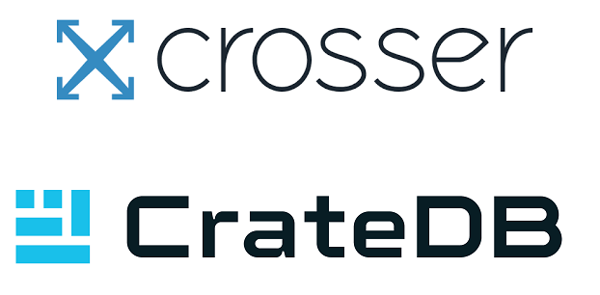Recently, CrateDB got a chance to conduct an insightful interview with Raja Devarapu, Co-Founder of Nextgenlytics, a CrateDB partner. In the interview, Raja shared his expert perspective on the key data challenges IT organizations are currently facing and discussed the driving factors for change in today's dynamic business environment. Diving into the complexities of application rationalization, data migration, and digitization, Raja highlights the importance of data quality and strategic data management. He also discusses how Nextgenlytics assists companies through their transformation journey, from data strategy development to advanced analytics and change management.
Raja's experiences illustrate the potential of CrateDB as a valuable end-to-end data analytics platform and the exciting opportunities that lie ahead in empowering businesses through real-time data analytics.
CrateDB: Could you tell us more about the key data challenges companies are facing today?
Raja Devarapu: The key data challenges companies are facing today are application rationalization, data migration (quality), and digitization.
- Data Silos and Redundancy: Legacy applications often create isolated data stores, making it difficult to access and integrate data for comprehensive insights. Rationalization aims to consolidate applications, but migrating data from disparate sources can be complex and lead to inconsistencies if data quality isn't addressed.
- Data Lineage and Ownership: With numerous applications, tracking the origin, flow, and ownership of data becomes challenging. This lack of clarity hinders data governance and makes it difficult to ensure data accuracy and compliance.
- Data Cleansing and Standardization: Migrating data during application rationalization and integrating data from new sources exposes data quality issues. Cleaning and standardizing data across different formats is crucial for accurate analysis and reliable decision-making.
- New Data Formats and Sources: Digitization often introduces new data types and sources (e.g., sensor data, social media feeds). Companies need to adapt their data management practices to handle diverse formats and ensure data quality across these new sources.
- Real-time Data Integration: Many digitization initiatives involve real-time data capture and integration. This requires robust data pipelines and infrastructure to handle the velocity and volume of data streams.
CrateDB: What is the impact on IT organizations?
Raja: These challenges create increased workload and pressure on skills demands:
- Data Migration and Integration: Migrating data from disparate sources during application rationalization and integrating new data from digitization initiatives create significant workload for IT teams.
- Data Quality Management: Cleaning, standardizing, and maintaining data quality requires dedicated effort and potentially new skillsets within the IT team.
- New Technologies and Tools: Modernizing data architecture and implementing data governance frameworks might require adopting new technologies and tools, necessitating skill development within the IT team.
The potential opportunities and benefits are:
- Improved Efficiency and Productivity: Streamlining applications and optimizing data management can lead to improved IT efficiency and resource allocation.
- Enhanced Agility and Innovation: A modern data architecture with better data quality empowers faster decision-making and facilitates data-driven innovation.
The challenges and considerations are:
- Resource Constraints: IT teams might face resource constraints to handle the additional workload associated with these transformations.
- Change Management: Managing the transition from legacy processes to new data-driven practices may require effective change management strategies to secure employee buy-in within the IT organization.
- Communication and Training: Clear communication with IT staff about the transformation goals and providing relevant training on new technologies and processes are crucial for successful implementation.
CrateDB: What is motivating them to change now?
Raja: There are several key factors motivating organizations to embrace massive transformation initiatives like digitalization, data driven mindsets, application rationalization. Below are few of them:
- Increased Competition and Market Disruption: The business landscape is constantly evolving. Companies need to be agile and adaptable to compete effectively. Implementing these transformations can improve efficiency, enhance innovation, and help companies stay ahead of the curve.
- Customer Experience Demands: Customers today expect personalized and seamless experiences across all touchpoints. Leveraging data effectively allows companies to gain deeper customer insights, personalize marketing campaigns, and improve customer satisfaction.
- Data-Driven Decision Making: Traditional decision-making based on intuition or limited data is no longer sufficient. Companies need access to clean, high-quality data to make informed strategic decisions and optimize business processes.
- Legacy and End of Life applications, Cost reduction and efficiency, Regulatory Compliance, Master Data Management, Data Quality, and so on and so forth.
CrateDB: How do you help them in their transformation?
Raja: We offer end-end data consulting and implementation services, some of our existing engagements involves below services.
Data analytics Consulting:
- Identifying Data Needs: Nextgenlytics help companies understand their specific data needs for each stage of the transformation. This includes identifying relevant data sources, defining key performance indicators (KPIs), and determining the data required for effective decision-making.
- Data Strategy Development: We collaborate with business stakeholders to develop a data strategy that aligns with the overall transformation goals. This strategy will outline how data will be collected, analyzed, and used to drive business value.
- Data Governance Framework: Nextgenlytics produces a data governance framework that outlines policies, procedures, and ownership for data management during and after the transformation.
- Data Analytics for Process Optimization: We advocate on using data analytics to identify inefficiencies in existing processes and recommend data-driven strategies for process improvement during digitization initiatives.
- Data Analytics Use Cases: We help identify specific use cases for data analytics within the context of application rationalization, digitization, and data quality improvement. For example, we might suggest using analytics to:
- Analyze user behavior and identify underutilized legacy applications.
- Optimize workflows and identify bottlenecks during digitization.
- Identify data quality issues and predict potential errors.
Data Analytics Implementation:
- Data Warehouse and Lake Development: Nextgenlytics help design and implement data warehouses or data lakes to store and manage the vast amount of data generated during the transformation.
- Data Integration Solutions: Nextgenlytics design and implement data integration solutions to seamlessly integrate data from new digital processes and sources (e.g., sensor data) into existing systems.
- Master Data Management (MDM): We help implement an MDM strategy to ensure consistency and accuracy of core business data across all applications and processes involved in the transformation.
- Building Real-time Data Pipelines: We help design and implement real-time data pipelines to handle the increased volume and velocity of data generated by digitized processes.
- Data Visualization Dashboards: We develop data visualization dashboards that provide real-time insights and enable stakeholders to monitor the progress and effectiveness of the transformation initiatives.
- Advanced Analytics and Machine Learning: We leverage advanced analytics and machine learning techniques to extract deeper insights from data and make data-driven recommendations for process improvement, resource allocation, and risk mitigation during the transformation journey.
- Data Mapping and Analysis: Nextgenlytics help identify and map existing data sources within the various applications targeted for rationalization.
- Data Migration Strategy: Nextgenlytics develops an end-to-end data migration strategy that ensures data integrity and minimizes disruption during application consolidation.
- Legacy System Assessment: Nextgenlytics evaluates legacy applications to understand their functionality, criticality, and potential for modernization or replacement.
- Data Cleansing and Standardization: Nextgenlytics offers data cleansing services to identify and correct inconsistencies and errors within the data migrated from legacy systems.
- Change Management: We provide change management expertise to ensure employee buy-in and smooth adoption of new processes and technologies.
CrateDB: How has your experience with CrateDB been so far?
Raja: NextGenlytics recognizes the potential of CrateDB as a valuable end to end D&A platform for our clients. CrateDB's scalability and cost-effectiveness make it a strong option for companies requiring real-time data analytics solutions that can handle a wide variety of data formats.
At NextGenlytics, we're thrilled to be partnering with the energetic and enthusiastic team at CrateDB. We share a common vision of empowering businesses through real-time data analytics.
Together, we're confident that we can achieve significant milestones and make a lasting impact on the data landscape. Our combined expertise will enable us to deliver powerful solutions that unlock the true potential of data for our clients.

